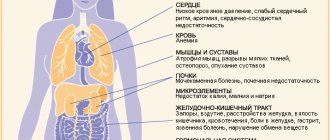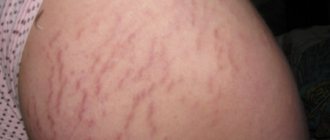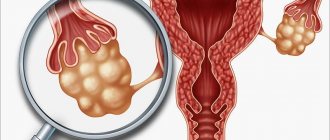Binge eating disorder is an eating disorder, obsessive bouts of excessive food consumption, caused not by physiological needs, but by psychological reasons.
In the modern world, people are often tense, many experience constant stress. Fleeing from the consequences of emotional breakdowns, a person seeks a way out of a critical situation. Some find salvation in hobbies, others in food, which not only provides energy for the normal functioning of the body, but can also bring pleasure. Trying to calm himself down by eating something tasty, a person uses food as an antidepressant.
Occasional “belly celebrations,” which bring relaxation after nervous fatigue, develop into a habit and occur unconsciously after each emotional trauma. At the same time, easily digestible, high-calorie foods rich in carbohydrates and fats are consumed, addiction to which leads to addiction. And many food manufacturers, in turn, do everything to enhance the taste of products and thereby increase their consumption.
Over time, people's sense of fullness gradually diminishes, and the portion and number of meals increases. The consequence of overeating is remorse, self-flagellation, guilt and the next “eating” of numerous problems. A food addiction develops, from which it is impossible to overcome it on your own.
Content:
- Types of disorders associated with uncontrolled eating
- Causes of the disease
- Treatment of compulsive overeating
- How to fight on your own 4.1. How to treat
- Consequences
Some people tend to cope with stressful situations or bad moods through food. Over time, food becomes an exclusive source of satisfaction, resulting in compulsive overeating or bulimia. Eating disorders cannot be ignored; over time, they negatively affect physical health and psychological well-being.
Symptoms
The main reason for compulsive overeating is the ability to forget about life problems that led to a depressed emotional state. However, eating food is only a temporary way out of this situation, since very soon dissatisfaction with oneself and a feeling of shame for the amount of food eaten comes.
In most cases, the symptoms of this pathology are noticeable to both the patient and his loved ones:
- Lack of satiety even after a large amount of food eaten.
- Increased appetite during strong emotional experiences or stress.
- Large portions of food eaten in a short period of time.
- A feeling of hunger that occurs when there is no need for food.
- Food is the only way to cope with negative emotions, at least temporarily.
The main manifestation of compulsive overeating is uncontrolled appetite. Most often, emotionally unstable people with mental disorders of varying degrees suffer from psychogenic disorders that contribute to the development of this disease.
As a rule, women and adolescents are at risk. Men suffer from this disease much less often, because they take their eating habits not as a pathology, but as a given. Let's look at what compulsive overeating is and how to deal with this pathology on your own and with the help of specialists.
Types of disorders associated with uncontrolled eating
Binge eating disorder is uncontrollable episodes of eating large meals that are not accompanied by cleansing procedures. We can talk about the presence of this disorder if episodes are repeated approximately 3 times a week for 3 months.
Symptoms:
- food consumption stops at the moment when a person experiences physical discomfort;
- in most cases, a person eats completely alone;
- the person eats faster than usual;
- after eating, self-loathing, depression and guilt appear;
- a person eats even if he is not hungry.
Bulimia is regularly recurring episodes of uncontrolled eating followed by compensatory behavior (cleansing the gastrointestinal tract, fasting, increased physical activity). Losing control over the amount of food eaten leads to feelings of guilt and fear associated with weight gain. During one attack, the patient can consume about 6000 kcal. It is worth noting that bulimia occurs 2-3 times more often than anorexia. The majority of patients are women aged 15-25 years.
Symptoms:
- uncontrolled eating of large portions in a short period of time;
- diets alternating with bouts of overeating;
- the patient eats alone;
- inducing vomiting;
- intensive training;
- low self-esteem;
- sudden mood swings;
- obsession with appearance and body weight;
- weakness;
- withdrawal from family members, friends and colleagues.
The main difference between bulimia and compulsive overeating is purging, fasting and increased physical activity in the first type of disorder.
Neuro-eating disorder - description of the disease
According to the Diagnostic and Statistical Manual of Mental Disorders, psychogenic binge eating (hyperphagic stress response) is an independent disease with a separate coding 307.51. A patient with an eating disorder is used to dealing with negative emotional stress and bouts of gluttony. The disease is manifested by a brutal appetite, to satisfy which an abnormal amount of food with a high calorie content is required. A nervous attack can be triggered by serious factors (the loss of a family member, injury) and minor reasons - speaking in a raised voice, missing a bus, etc. Nervous eating disorder is caused by mental causes, there is no physiology in the cause-and-effect relationship. Food in this case is a tonic that allows you to forget about the problem for a while and relax. A patient who has experienced a nervous shock is trying not to feed his stomach, but to drown out his feelings.
It is important to distinguish between physiological hunger and nervous appetite. This is an important step on the path to recovery and selection of competent treatment:
| Nervous hunger | Physical hunger |
| It can occur against the background of satiety, it occurs unexpectedly and sharply. | It develops gradually, the body does not require urgent saturation. |
| During attacks, the body requires unhealthy food - the priority is fast food, fatty foods, sweets, starchy foods, etc. | You can satisfy your appetite with any food, homemade and healthy. |
| The portion size significantly exceeds the usual volume, and there is no control over the amount eaten. | A person eats exactly as much as is needed to satisfy hunger. |
| The portion size significantly exceeds the usual volume, and there is no control over the amount eaten. | The physical need for food arises with a feeling of “sucking in the pit of the stomach”, weakness. |
| Feelings of guilt and shame arise after eating. | After eating, a feeling of satisfaction comes and strength appears. |
The causes of mental disorder may be genetic.
Causes of the disease
Most often, eating disorders develop in adolescence, when experiments with diets begin. Restrictions lead to the opposite result - excessive food consumption and weight gain.
The cause of compulsive overeating in adolescents can be parental diets or the transmission of values about low weight, as well as depression or stress.
The causes of increased appetite may be physiological factors: genetic predisposition or dysfunction of the hypothalamus.
Causes of overeating
As practice shows, in each patient with a disorder of rational food consumption, individual factors and causes of the disease are identified. In medicine, this disease is also called a psychogenic disorder. Most often, the cause of pathology is a stressful situation, which acts as a trigger. It is triggered in response to stress, and can become an unfavorable factor for triggering a painful condition. Treatment of compulsive overeating occurs taking into account the circumstances that led to the pathological condition.
In medicine, categories of causes that cause psychogenic disorder are described. Each of them combines several factors.
Biological reasons
The physiological characteristics of each person can cause a psychogenic disorder. These include:
- increased metabolism - accelerated metabolism in the body requires a constant supply of food;
- the presence of chronic endocrine diseases - dysfunction of the thyroid gland, type 1 diabetes mellitus and others;
- pathological addiction to certain foods - addiction to certain types of food, for example, sweet or spicy foods.
The biological causes of pathological food addiction disorders are easily correctable. This is due to the fact that compensation for the underlying factor leads to the treatment of compulsive overeating.
Genetic factors
If close relatives have ever had mental or psychological disorders or endocrine diseases, then the person may have a genetic predisposition to food addiction. In this case, even minor stress can trigger destructive processes in the body.
This category of causes of the disease refers to factors that are difficult to correct. Treatment of a pathological condition is accompanied by a study of the medical history of the patient and his relatives.
Social and psychological reasons
The most significant group of factors, which includes the patient’s individual psychological attitudes, external influences and social aspects of life.
Psychological reasons include:
- loneliness;
- grief suffered;
- increased demands on yourself;
- emotional experiences;
- psychological trauma (including those suffered in childhood);
- prolonged depression.
Against the background of psychological problems, uncontrolled eating is an attempt by the patient to drown out internal pain and resentment towards himself and others. There is also an unconscious substitution of feelings - the pleasure of eating food replaces pleasant communication with the opposite sex, hobbies and other joys of life.
Often the causes of impaired eating habits are the patient’s environment and social factors. Society imposes standards of male and female beauty. Programs are filmed and thematic video blogs are published about what a successful and beautiful person should look like. The discrepancy between the parameters of one’s own body and generally accepted norms gives rise to self-hatred and leads to deep depression.
Social factors also include the formation of unhealthy eating behavior in the family. The cult of food, as a rule, is instilled by representatives of the older generation who survived the famine during perestroika and remember the shortage of food during the Soviet period. At the same time, food is often used as a reward in the family circle, especially for children. Grandmothers feed their grandchildren large portions, parents buy harmful and unhealthy food, indulging the child’s whims.
Important information! Habits of eating a large breakfast, lunch and dinner, learned from childhood, remain for life and are difficult to correct in adulthood.
On top of everything else, the food industry pushes people to increase their food consumption. Fast food restaurant chains, colorful advertising, various types of fast food and home delivery of food contribute to the development of an unhealthy diet and excessive consumption of harmful foods.
Treatment of compulsive overeating
At the initial stages of the disease, others do not notice changes in the patient’s behavior. Only if a person himself admits the presence of problems will he be able to find the answer to the question: how to overcome compulsive overeating. The sooner you can identify the causes and begin treatment, the higher the likelihood of a complete cure.
How to fight on your own
First you need to acknowledge the problem. Start looking for the true reasons; usually, people eat stress, anxiety, and tension. It is necessary to learn to distinguish physiological hunger from psychological, and also to abandon food prohibitions. Diets and dietary restrictions, in most cases, are the causes of the development of the disease.
How to treat
But what should those who cannot find the strength to cope with the disease do? Of course, look for a competent psychotherapist who will help you find the true cause, eliminate it and get rid of compulsive overeating.
The treatment method is selected depending on the severity of the patient’s condition. The following psychotherapeutic methods have proven effectiveness:
- Cognitive behavioral therapy allows you to determine the root cause of the disease, so that the specialist can choose the right treatment tactics.
- Dialectical behavior therapy is aimed at finding new ways to deal with stressful situations, teaching emotional regulation techniques that are not related to eating or refusing food. Completion of treatment is accompanied by the abandonment of extreme methods of dealing with stress and strict diets.
- Family psychological therapy has a positive effect. During treatment, the specialist helps to develop adaptive tactics, create the correct model of behavior, and provides support to the patient’s family members.
Treatment
If overeating is caused by the diseases listed above, then they should be treated. Since loss of control over eating is an eating disorder, treatment should be carried out by a psychiatrist. In cases where overeating is complicated by weight problems, mental disorders, self-purification and self-harm, the initial stage of treatment is carried out in a hospital setting. In all other cases, therapy can be carried out at home.
Methods for treating overeating:
- Psychotherapy.
- Drug therapy (antidepressants, metabolic drugs, neurometabolic therapy, atypical antipsychotics, etc.)
- Physiotherapy: electro-sleep, transcranial magnetic stimulation.
- Fasting and dietary therapy. Diet therapy.
- Biofeedback therapy.
- Exercise therapy, massage, reflexology.
- Insulation.
Consequences
Delayed treatment and its absence can lead to negative consequences.
Possible complications:
- development of cardiovascular disease;
- obesity;
- development of a depressive state;
- drug or alcohol addiction;
- diabetes;
- changes in blood pressure;
- metabolic disorders;
- diseases of the gastrointestinal tract;
- development of certain types of cancer;
- increased cholesterol levels;
- osteoarthritis;
- apnea.
Bulimia due to regular induction of vomiting or intestinal lavage is accompanied by disturbances in the functioning of the gastrointestinal tract. Due to the fact that some patients take diuretics, their body may become dehydrated.
It is worth noting that people suffering from bulimia and compulsive overeating disorder look different. The former are slim, the latter are overweight, which increases over the years.
Uncontrolled eating can lead to severe consequences. The patient experiences emotional dissatisfaction, which contributes to the development of depression and can cause suicidal thoughts. The whole body suffers from uncontrolled eating. If you contact a qualified specialist in a timely manner, there is a high probability of successful treatment and full recovery.
Possible complications
Untimely treatment of compulsive overeating or its absence can cause various pathologies of internal organs and systems. Most often, due to lack of therapy, complications develop such as:
- Obesity.
- Changes in blood pressure: from hypotension to hypertension.
- Hormonal imbalance.
- Aggressive behavior.
- Apathy, tearfulness.
- High cholesterol.
- Depression.
- Decreased immunity.
- Metabolic disorder.
- High blood glucose levels.
- Heart diseases, gastrointestinal tract.
- Type 2 diabetes.
- Problems with the thyroid gland.
- Alcohol addiction.
Gradually, complications caused by compulsive overeating can become chronic, which will significantly reduce the chances of a speedy recovery. You can avoid the occurrence of an eating disorder if you are attentive to your health, and in case of alarming symptoms, follow the recommendations of specialists.
Literature:
- Bulimia. Food or life: How to get rid of food addiction / Kulchinskaya, Irina Vladimirovna. - Moscow: Binom, 2013. - 255 p.
- Bulimia Therapy: Using Dialectical Behavior Therapy to Interrupt the Bulimic Cycle and Regain Control of Life / Ellen Astrachan-Fletcher, Michael Maslar; translation from English and editing by M. B. Smologub. — Moscow: Dialectics; St. Petersburg: Dialectics, 2021. - 284 p.
- Getting rid of food addiction: how to cope with uncontrollable cravings for food, relieve stress and stop hating your body: workshop / Carolyn Cocker Ross; [translation from English by Natalia Buravova]. — St. Petersburg: Ves, 2021. — 272 p.










